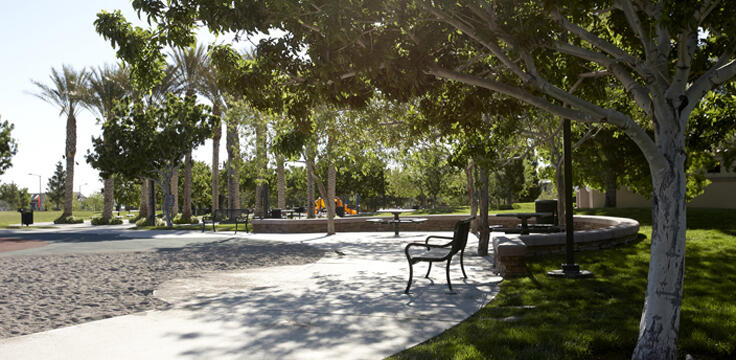Checked out a yoga class at a local rec center lately? Walked around your neighborhood park? Biked one of Las Vegas' many trails? A free outdoor gym is available right outside your front steps, said Monica Lounsbery, director of UNLV's physical activity policy research program.
For the last three years, Lounsbery studied how local residents spent their time in six parks and four trails in Clark County. She hopes policymakers will use the information when developing healthy living and physical activity campaigns.
She shared her thoughts on the Observing Park Environments in Nevada (OPEN) project.
What's preventing people from being physically active?
Technological, environmental and sociological changes over time have led to significant decreases in physical activity. Almost one-half of Americans do not meet the current physical activity guidelines and almost one in four reports having no leisure time physical activity. Sedentary living is global problem. Nevadans are not alone in having a sedentary lifestyle.
How do parks play a role in fostering physical activity?
Neighborhood parks and trails are incredibly important in promoting good health because they are free and accessible to everyone and because they help generate a sense of community. Our study revealed many people simply don't know where their closest park is or what amenities are available.
Another significant finding was that park users are more likely to be from low-income families. We know from research that poor health and high obesity rates are more prevalent among low-income families. So, parks are ideal venues for addressing health disparities.
How did people in the study use parks?
We found that people were more physically active in large spaces, sport facilities, paths, and playgrounds. We also know that providing shaded areas is important. We also found that people who came to the park to watch sports, or brought their children or pets to play, were sedentary. To encourage activity with these park users, parks can be redesigned to include perimeter walking paths and fitness stations.
The major attraction of parks is programming. We recommend programming that provides physical activity opportunities for all family members.
How can someone on a budget incorporate physical activity in his or her daily routine?
We know that not having enough time is a major barrier for adults not engaging in physical activity or exercising. So I recommend doing several, small activities.
Walking, biking or jogging around the neighborhood, even for only 10 minutes a day, has some benefits. At work, take frequent breaks from sitting (at least one break per hour). Take the stairs instead of the elevator. Make work meetings "walking" meetings. Most city or county parks provide low-cost programs for all age ranges, including older adults.
Consider walking, biking, or using mass transit like the improved Regional Transportation Commission bus system. Now, more than ever before, there are more feasible options to help make your commute an active and efficient one.



